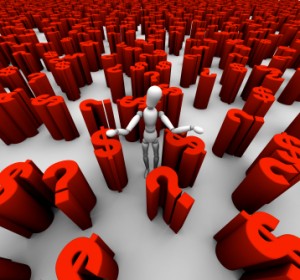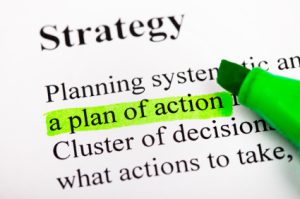 Before we can even catch our breath, we learn that the Fed has bailed out AIG to the tune of $85B to forestall an even greater calamity in capital markets across the world. [You can read about this everywhere but here’s a convenient link to today’s Wall St. Journal lead article.] Probably a good thing at this juncture but so much of this would have been avoidable if many of the warning signs would have been heeded earlier.
Before we can even catch our breath, we learn that the Fed has bailed out AIG to the tune of $85B to forestall an even greater calamity in capital markets across the world. [You can read about this everywhere but here’s a convenient link to today’s Wall St. Journal lead article.] Probably a good thing at this juncture but so much of this would have been avoidable if many of the warning signs would have been heeded earlier.
It would be easy, but naive, to blame the greed of Wall St. for all of these problems. Sure, there’s a lot of that to spread around and some of the gaudy exit packages are illustrative, e.g., the top 3 executives at Merrill Lynch stand to gain up to $200M after being there less than one year and presiding over the passing of the venerable 90+ year old financial titan.
I think there are two key reasons why these financial tragedies appeared on stage at all. First, the greed of Main Street. Individual consumers must take responsibility for accepting mortgages they knew they couldn’t pay. A news writer recently traced a few of the Lehman-supported sub-prime mortgages to couples whose monthly mortgage payment exceeded their take-home pay. No, not exceeded the 40% guideline for monthly housing costs but exceeded 100% of take home pay! Is that Lehman’s fault? Well, it was pretty stupid to offer such a loan with no chance of repayment, but the borrower is equally at fault. They had to know they could never make the payments. Machiavelli would be proud that so many consumers calculated that they didn’t have much to lose since they had virtually no equity and if they couldn’t keep up, which was inevitable, they could bail out. Both lenders and consumers had to see that possibility and both greedily ignored it.
The second major factor clearly lies with Wall Street, and for my money, it’s about risk management. Mostly, it’s about the derivatives that bundled millions of “pieces” of collateralized mortgages into incredibly complex instruments that no one can understand or evaluate. It’s AIG’s credit default swaps to protect against default on something like $62T – yes 62 TRILLION DOLLARS – in loans whose collateral value, much of it in housing, is falling every day. The slippery slope falls fast from there. As the asset values of your collateral fall and the rating agencies downgrade your debt, your obligations to your trading partners increase in order to give them the equivalent credit protection you promised them. If, like Lehman, you’re leveraged 30:1 or so, that’s particularly painful. So, you raise more money but since your stock has fallen badly, it becomes harder and more expensive . . . and, so, the downward spiral pirouettes until it arrives at death’s door.
For me, the Main Street lesson is too obvious to bear repeating. For, Wall Street, the lesson is also clear and has application for all of us. Don’t invest in something you don’t understand, can’t measure and have no way to monitor.
more later . . . .



